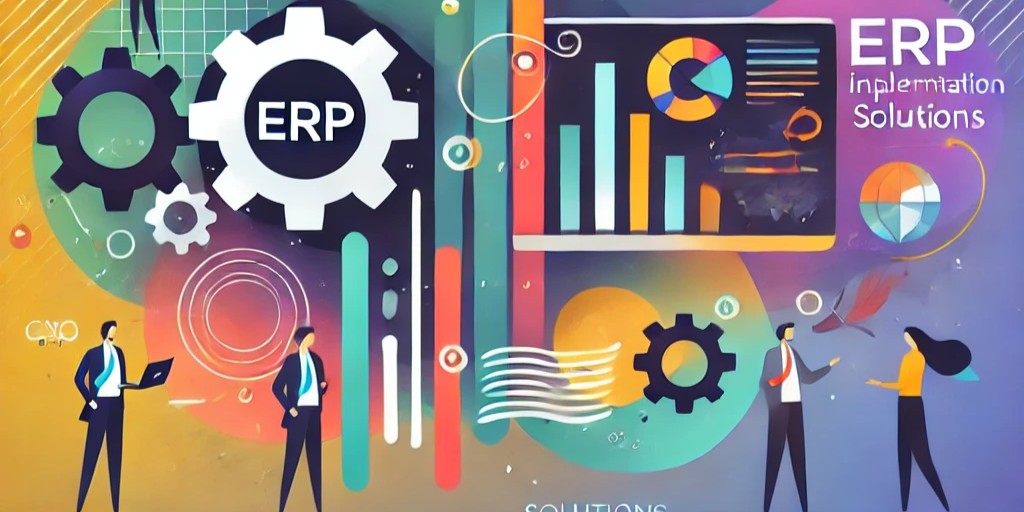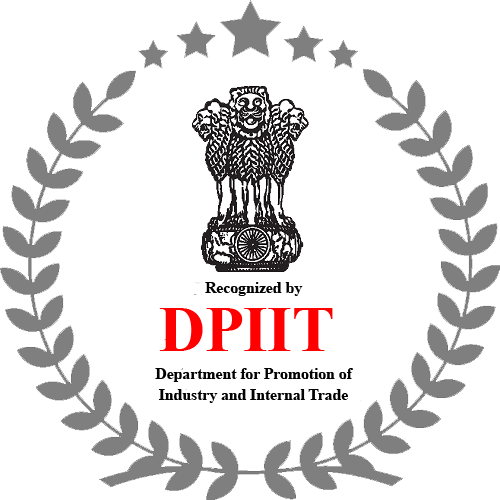ERP Implementation Challenges and How to Overcome Them: Insights from an ERP Leader
Implementing an Enterprise Resource Planning (ERP) system is one of the most significant transformations a business can undergo. A well-executed ERP system streamlines operations, improves efficiency, and provides data-driven insights. However, the path to successful ERP implementation is filled with potential challenges that can lead to cost overruns, project delays, and system failures.
As an ERP leader, understanding and addressing these challenges proactively can mean the difference between a smooth ERP implementation and a costly failure. In this blog, we will explore the top ERP implementation challenges and provide expert solutions to help your business navigate them effectively.
Lack of Clear Goals and Objectives
Challenge
One of the most common reasons for ERP failure is the lack of clearly defined goals. Without a clear roadmap, businesses may struggle to measure success, leading to misalignment between the ERP system and business needs.
Solution
- Define measurable objectives such as improved efficiency, cost reduction, and better decision-making.
- Align ERP implementation goals with overall business strategy.
- Involve key stakeholders in setting priorities to ensure the system meets all department needs.
A strong ERP leader ensures that every step of implementation is aligned with strategic business goals, minimizing ambiguity and maximizing efficiency.
Inadequate Budgeting and Cost Overruns
Challenge
ERP implementations often exceed the initial budget due to unforeseen costs such as system upgrades, customization, and additional training. Underestimating these expenses can lead to project delays or even failure.
Solution
- Develop a realistic budget that includes implementation, training, and ongoing maintenance costs.
- Factor in potential customization needs and software scalability.
- Regularly review expenses to ensure the project stays on track.
A seasoned ERP leader carefully analyzes budgetary requirements and establishes a cost-effective strategy to avoid unnecessary spending.

Resistance to Change from Employees
Challenge
ERP systems change how employees work, and resistance to change is a major roadblock. Employees may feel overwhelmed by new processes, leading to low adoption rates.
Solution
- Communicate the benefits of the new ERP system early and often.
- Provide comprehensive training tailored to different user roles.
- Encourage feedback and involve employees in the transition process.
By fostering an environment of open communication, an ERP leader ensures smooth adoption and minimizes resistance to change.
Poor Data Migration and Data Quality Issues
Challenge
Migrating data from legacy systems to a new ERP platform is a complex process. Poor data quality, duplication, or missing information can lead to serious business disruptions.
Solution
- Conduct a data audit before migration to ensure accuracy.
- Clean and format data to remove duplicates and errors.
- Perform rigorous testing to verify data integrity post-migration.
A proactive ERP leader works closely with IT teams to ensure seamless data migration, avoiding costly mistakes.
Choosing the Wrong ERP Solution
ChallengeNot all ERP systems are created equal. Selecting an ERP solution that doesn’t align with your business needs can lead to inefficiencies and additional costs.
Solution- Assess business requirements before selecting an ERP system.
- Choose an ERP that is scalable and industry-specific.
- Consult an ERP leader to guide the selection process.
Investing in the right ERP solution from the start ensures long-term success and scalability.
Insufficient Training and Support
ChallengeEven the most advanced ERP system will fail if employees don’t know how to use it effectively. Lack of training leads to frustration, errors, and underutilization of ERP features.
Solution- Provide role-based training tailored to different user groups.
- Offer ongoing support through help desks, tutorials, and workshops.
- Implement a change management plan to assist employees in adapting.
An ERP leader ensures that training is a priority, empowering employees to maximize the system’s capabilities.
Inadequate System Testing
ChallengeSkipping through testing before deployment can lead to system errors, integration failures, and operational disruptions.
Solution- Conduct unit testing, integration testing, and user acceptance testing (UAT).
- Simulate real-world business scenarios to identify potential issues.
- Have an ERP troubleshooting plan in place before going live.
By prioritizing testing, an ERP leader ensures a smooth transition without technical roadblocks.
Integration Issues with Existing Systems
ChallengeMany businesses use multiple software solutions for different departments. A new ERP system must integrate seamlessly with existing systems; otherwise, it can cause data silos and operational inefficiencies.
Solution- Choose an ERP that supports third-party integrations with existing tools.
- Work with IT teams to ensure smooth data exchange.
- Implement middleware solutions if direct integration is not possible.
An experienced ERP leader anticipates integration challenges and works proactively to ensure system compatibility.
Unrealistic Implementation Timelines
ChallengeMany businesses underestimate the time required for ERP implementation. Rushing the process can lead to incomplete configurations, data migration errors, and system failures.
Solution- Develop a realistic timeline with well-defined milestones.
- Allow adequate time for testing and employee training.
- Monitor progress and adjust timelines as needed.
A skilled ERP leader ensures that project timelines are flexible yet structured, balancing speed with quality.
Lack of Post-Implementation Support
ChallengeERP implementation doesn’t end at go-live. Without proper post-implementation support, businesses may struggle with system updates, troubleshooting, and optimization.
Solution- Set up a dedicated support team to handle post-implementation issues.
- Continuously monitor system performance and user feedback.
- Schedule regular ERP audits and updates.
A responsible ERP leader ensures that ongoing support and maintenance keep the ERP system running efficiently.

Conclusion
ERP implementation is a complex but rewarding process that can significantly enhance business efficiency. However, challenges like resistance to change, budget overruns, data migration issues, and inadequate training can hinder success. By proactively addressing these issues and seeking guidance from an ERP leader, businesses can ensure a seamless transition.
By setting clear goals, investing in proper training, and selecting the right ERP system, companies can optimize their ERP implementation and maximize ROI. With the right strategies in place, businesses can leverage ERP solutions to drive long-term success.




